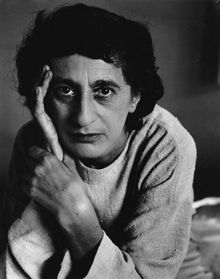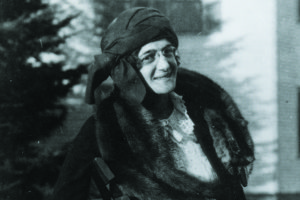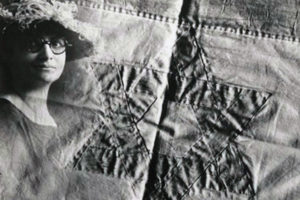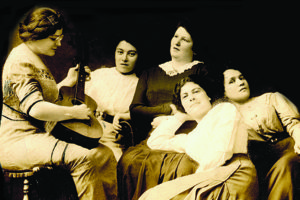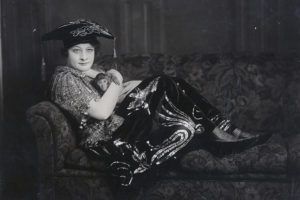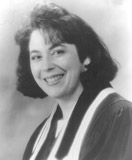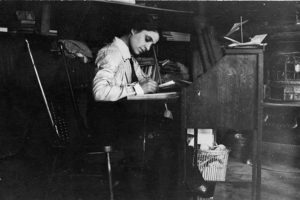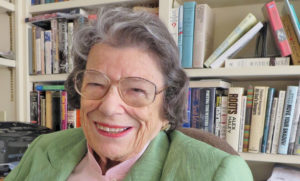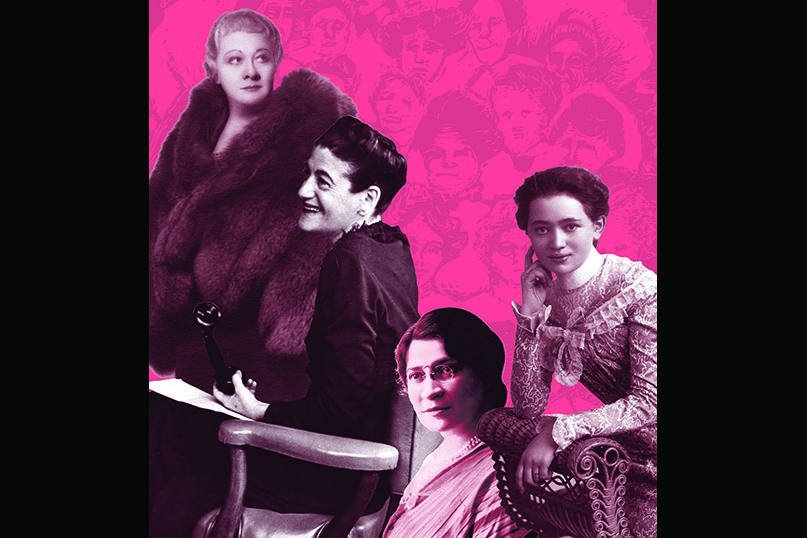
A new exhibit pays tribute to the extraordinary accomplishments of 12 pioneering Connecticut Jewish women
By Stacey Dresner
WEST HARTFORD – They were smart, strong, and determined to make a difference in the world.
They carved out their own paths in a variety of professions, often fighting their way through enormous challenges and obstacles.
And they were often the first women to succeed in their fields at a time when the world was telling them that a woman’s place was in the home.
They are the trailblazers – Connecticut women who in the early 20th century paved the way for the next generations of women to enter and succeed in the worlds of business, medicine, education, the law, and entertainment and the arts.
Now, the community will pay tribute to these exceptional women of accomplishment – and learn more about their extraordinary lives – through “Trailblazer: Connecticut Jewish Women Making History,” a fascinating new exhibit that will open with a reception on Tuesday evening, Sept. 3 at 5:30 p.m. in the Chase Family Gallery of the Mandell Jewish Community Center in West Hartford. The exhibit features 12 women with ties to the Nutmeg State. Curated by the Jewish Historical Society of Greater Hartford, it will run through Oct. 2.
A luncheon in conjunction with the exhibit and co-sponsored by the Jewish Federation of Greater Hartford’s Women of Impact will be held Thursday, Sept. 12. The luncheon will be highlighted by a talk from guest speaker Judith Rosenbaum, executive director of the Jewish Women’s Archive.
Estelle Kafer, director of the Jewish Historical Society, said that the idea to share the stories of these fascinating remarkable women in an exhibit had been brewing for a while.
“Some of the women who are from Hartford, such as Sophie Tucker, Annie Fisher and Beatrice Fox Auerbach, we know a lot about – we have big collections on them and have featured them before in exhibits and projects,” she says. “But as we’ve been doing research and going through the archives for various projects we realized there were other women as well whose contributions were remarkable. We thought since women have been in the spotlight in the last few years that it is important to recognize them.”
Besides Tucker, Fox Auerbach and Fisher, there are several figures featured in the exhibit who are not as easily recognized. Like Rebecca Affachiner, who helped establish Big Brothers/Big Sisters and who as an adult spent several years living in Hartford; and Matilda Rabinowitz, a union organizer who fought for the rights of factory workers around the U.S.; and Miriam Karpilove, a prolific Yiddish writer. Both Rabinowitz and Karpilove called Bridgeport home for many years.
“They were all remarkable and inspiring,” Kafer says. “What they all have in common is their struggles and their grit. Despite what they faced they all overcame obstacles. They all really were trailblazers – they paved a way for others who came after them.”
The exhibit will feature panels for each of the 12 women, on which will be displayed a biography, photographs, and the story of what they accomplished and how they did it.
To help set the tone, mannequins set throughout the exhibit will feature examples of the clothing women worn during the early 20th century that is on loan to the historical society by the Estella M. Sprague Costume Collection at the University of Connecticut.
“I decided it would be fun to have some clothing in addition. Of course, we couldn’t pick out outfits that these women wore, but I was able to choose some costumes that represented women in the early part of the century, what they might have worn,” Kafer says. “People love the clothing. And, if the clothing will bring them in and they start reading about the women, that’s ok with me.”
Kafer and her crew of researchers worked with the Jewish historical societies of New Haven and Fairfield to find more information about Jewish women from those areas. She hopes that once its run in Hartford is ended, “Trailblazers” will travel to these other Jewish communities.
Another indispensible resource was the website of the Jewish Women’s Archive (JWA), the national organization that has documented “many thousands” of Jewish women’s stories.
The JWA’s Judith Rosenbaum notes that the archives purpose is to “make sure that when we tell the Jewish story that we are telling an inclusive story and including the voices of women and people that have been left out. How we see the past shapes how we understand ourselves and our place in the world and what we can do moving forward.”
Judith Schlossberg, chair of Women of Impact and the Women’s Philanthropy campaign of the Jewish Federation, says that this program is exactly what Women of Impact is all about.
“Every year we choose a woman to highlight that has made an impact either in our community or in the greater community,” she said. “The women we will be highlighting will be women trailblazers from the early 1900s that have made an impact in our community and beyond.
“At this particular time when there has been so much conversation around women’s rights and the way that women are treated and respected this is the type of presentation that can help younger women feel that they are important and that they can make just as big a statement and just as big an impact as these women. People don’t realize how many women have made an impact on our lives throughout the centuries.”
Often, that impact is the legacy these women leave to their families. Case in point: Matilda Rabinowitz.
Born in Ukraine in 1887, Matilda Rabinowitz and her family moved to the United States when she was 13, settling in Bridgeport the following year. She became passionate about the conditions and rights of workers after working herself in a sweatshop making corsets.
A member of the Socialist Party of Bridgeport, Rabinowitz was one of the first women to become a leading labor activist in the U.S. After working on her first strike at a factory in Lawrence, Mass. in 1912, she became an organizer for the Industrial Workers of the World (IWW) for several years, traveling around the country to organize strikes.
“Matilda was tiny – under 5 feet tall – but she was a towering personality,” says her granddaughter Robbin Legere Henderson, an artist living in California.
In 2017, Henderson illustrated and published Immigrant Girl, Radical Woman, a memoir Rabinowitz had written about her life.
“Reading her memoir made me realize how brave, intelligent and passionate for justice she was,” Henderson says. “Although I always knew about her activism which continued until the day she died, I didn’t really realize how much she contributed as an historical figure until long after she was gone.”
While Henderson lives too far away to see the Trailblazer exhibit, she is pleased that her grandmother and her accomplishments will be highlighted.
“It’s gratifying to have Matilda acknowledged for her contribution to the labor movement and to radical thought and activism in America,” Henderson says. “She was ignored by historians for so long, left out of labor histories or barely mentioned. Now she is getting the recognition she has always deserved.”
“Trailblazer: Connecticut Jewish Women Making History” will run Sept. 3 – Oct. 2. Opening reception: Tuesday, Sept. 3, 5:30 p.m. in the Chase Family Gallery of the Mandell JCC, 335 Bloomfield Ave. Exhibit hours: Monday -Thursday, 9 a.m. – 9 p.m.; Friday, Sunday, 9 a.m. – 6 p.m. For more information or to register for the Sept. 12 luncheon, visit https://jhsgh.org/trailblazer.
Trailblazers on exhibit
REBECCA AFFACHINER, leader in Jewish charities, known as Israel’s Betsy Ross.
ANNIE ALBERS, pioneer in using textiles as art.
BEATRICE FOX AUERBACH, matriarch of the G. Fox department stores and a leading Connecticut philanthropist.
RABBI JODY COHEN, first solo female rabbi in a Connecticut synagogue.
ANNIE FISHER, Hartford’s first female principal and education reformer.
MIRIAM KARPILOVE, first woman Yiddish novelist.
ELLEN ASH PETERS, first woman chief justice of the Connecticut Supreme Court.
MATILDA RABINOWITZ, early union organizer.
ESTHER ROME, co-author of Our Bodies, Ourselves and advocate for women’s reproductive health.
BETTY ROSS, international television and radio journalist.
SOPHIE TUCKER, vaudeville entertainer and philanthropist.
FLORENCE WALD, first Jewish dean at Yale’s School of Nursing and founder of American Hospice.







 Southern New England Jewish Ledger
Southern New England Jewish Ledger